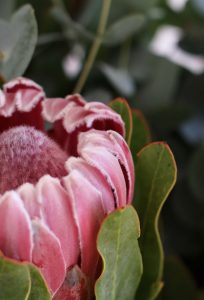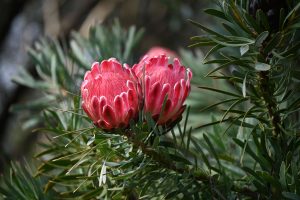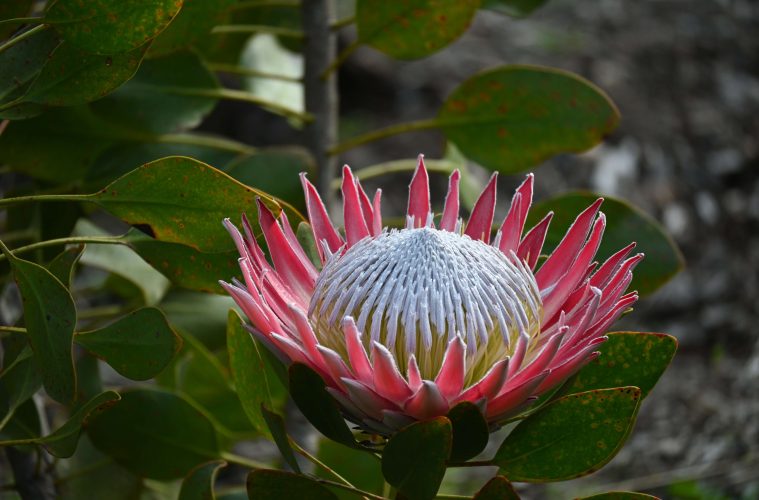Protea plants, with their captivating, exotic blooms, are a striking addition to any garden. These hardy South African natives have found their way into gardens and homes around the world, bringing a touch of the wild and a burst of colour to your landscape. To ensure these magnificent plants thrive, it’s essential to provide them with the right care.
Explore some expert tips on nurturing your protea plants to ensure they continue to dazzle year after year:
Choose the right location
Selecting the ideal spot for your protea plants is crucial. They thrive in full sunlight, so aim for a location that receives at least six hours of direct sunlight each day. Ensure good air circulation to prevent fungal issues, and consider planting them in raised beds to ensure good drainage, as proteas dislike wet feet.
Well-drained soil
Proteas are finicky about soil. They prefer acidic, well-draining soil with a pH between 5.5 and 6.5. Incorporate organic matter like compost into the soil to improve its texture and drainage.

Unsplash
Water wisely
Protea plants are drought-tolerant once established, so avoid overwatering. Water deeply but infrequently, allowing the soil to dry out slightly between waterings. During the growing season, provide more water, and reduce it during dormancy.
Mulching
Apply a layer of organic mulch around the base of your protea plants to help retain soil moisture and keep weeds at bay. Mulch also moderates soil temperature, which proteas appreciate.
READ MORE: PLANT OF THE MONTH: EXPLORE THE DIVERSE BEAUTY OF PROTEA PLANTS

Unsplash
Pruning and deadheading
Regular pruning is essential to maintain the shape and health of your protea plants. Remove spent blooms and trim back leggy growth to encourage a compact, bushy appearance. Prune after flowering but before new growth begins in late winter or early spring.
Fertilise sparingly
Proteas have unique nutritional requirements. Use a low-phosphorus, slow-release fertiliser specifically formulated for acid-loving plants. Apply it sparingly during the growing season to avoid over-fertilisation.

Unsplash
Protection from frost
While proteas are generally hardy, they can be sensitive to frost. If you live in a frost-prone area, consider providing protection, such as frost cloth, or relocating potted proteas indoors during colder months.
Pest and disease control
Keep an eye out for pests like aphids and mealybugs, which can occasionally plague proteas. Treat any infestations promptly with appropriate insecticidal soap or neem oil.
By following these care tips, you’ll be well on your way to nurturing healthy, vibrant protea plants. With a little attention and love, your proteas will be a centerpiece in your garden and a testament to your green thumbs.
Feature image: Unsplash


